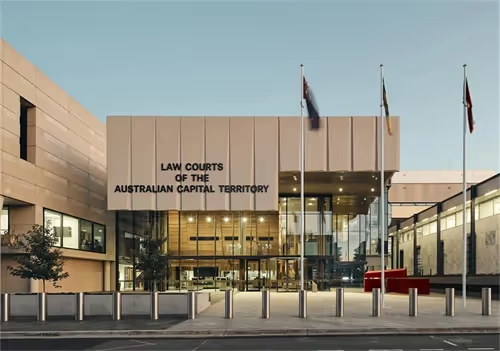Receive / Dispose of Stolen Goods Offences

Charged with Receiving or Disposing of Stolen Goods? We Can Help
Being accused of receiving or disposing of stolen property does not automatically mean you are guilty. Our experienced criminal defence lawyers can assess your case, challenge the evidence, and guide you through the legal process to protect your rights.
Detailed description:
- We can help identify whether the prosecution has sufficient evidence to prove that you knowingly dealt with stolen goods.
- Our team provides strategic defence planning, including negotiating with the prosecution or seeking charge reductions.
- We represent clients in Local and District Courts across NSW, ensuring your matter is prepared and presented effectively.
If you are facing such a charge, contact Brightstone Defence today to discuss your legal options and receive personalised guidance on the best strategy for your case.
What is receiving or disposing of stolen goods?
Section 188 of the Crimes Act 1900 sets out the offence of receiving, disposing or attempting to dispose of stolen property and knowing or believing that it was stolen. This law aims to stop people from assisting criminals profit from stolen goods, whether it is by reselling, hiding or holding onto stolen goods.
Elements the Prosecution Must Prove
To be found guilty of this offence, the prosecution must prove that:
- The property was stolen, “the stealing whereof amounts to a serious indictable offence”
- You received, disposed of, or attempted to dispose of the property
- That you knew or believed that the property was stolen at the time
It is important to note that receiving can include possessing, storing, or even agreeing to take the stolen item. Disposing of the goods includes selling, giving away or destroying the item.
Possible Defences
It is important to know your options and your rights, making it essential to consult a legal professional. Depending on your circumstances, possible defences may include:
- Lack of knowledge
- The property was not stolen
- You did not receive, or dispose or attempt to dispose of the property
- Honest and reasonable mistake
- Claim of right
- Duress / necessity
- Lack of possession
Potential Penalties
The possible penalties that you may face depend on circumstances such as the total value of the goods and whether you possess a prior criminal history.
Set out under section 188, “(a) if the property is a motor vehicle or a motor vehicle part, or a vessel or a vessel part, to imprisonment for 12 years, or (b) in the case of any other property, to imprisonment for 10 years”.
The maximum penalty for this offence is 10 years imprisonment, however if the offence involves a motor vehicle or motor vehicle part the maximum penalty is 12 years imprisonment.

Legal Process
& Options
At Brightstone Defence, we specialise in assisting clients to obtain the best possible outcome. Whether you wish to plead guilty or not guilty, it is essential to know your rights.
Pleading
Not Guilty
If you decide to plead not guilty, the prosecution must prove beyond reasonable doubt the key elements of the offence, being:
- The property was stolen
- You received, disposed of, or attempted to dispose of the property
- That you knew the property was stolen or believed it was stolen at the time
If the prosecution are unable to prove each element beyond reasonable doubt, you will not be convicted. It is important to seek legal advice, as a lawyer will assist you in putting your best case before the court.
Pleading
Guilty
If you decide to plead guilty, you admit the responsibility of committing the offence. Contact Brightstone Defence today for specialised advice on how we can best represent you at sentence.
Arson is the intentional destruction or damage of property using fire, whilst recklessly setting a fire is a less culpable offence where the damage was reasonably foreseeable.
Yes, you can be charged even if the property is jointly owned or you had no ownership at all.
Depending on the circumstances of your case, if the fire has caused significant damage or danger to life, a sentence of imprisonment is well within the sentencing scope. However, if the objective seriousness is low, alternative penalties are available.
The term “knowingly” means that you either knew or strongly suspected that the property was stolen at the time that you received or was dealing with it.
Yes, you do not need to steal the goods to be found guilty of this offence. Receiving, disposing or attempting to dispose of stolen goods is enough.
If you genuinely did not know that the goods were stolen and there are no reasonable grounds to suspect that you knew, this may be a valid defence to your case.
If you are found guilty or convicted of this offence, you will most likely receive a criminal record. However, it is important to receive legal advice for representation as your lawyer may argue for a non-conviction in order to avoid a criminal record. Contact Brightstone Defence to know your rights and options.
You are not required to explain where the items came from but anything you do or say can be used against you in court. Your best option is to remain silent and to avoid answering questions without legal advice. Contact Brightstone Defence for tailored legal advice for your case.
Yes, the police only need to have a reasonable suspicion that the goods were stolen or unlawfully obtained, not that they actually were.
If you are convicted of this offence, yes. However, your lawyer may argue for a non-conviction outcome such as a section 10 dismissal or a Conditional Release Order (Without Conviction), depending on your circumstances.
“Proceeds of crime” refers to property or benefits derived directly or indirectly from the commission of a criminal offence. This can include but not limited to:
- Money from drug trafficking
- Vehicles or homes purchased using illicit funds
- Cryptocurrency from fraud or scams
The law allows for the seizure, forfeiture, and confiscation of such assets, even without a criminal conviction in some cases.
Under section 193B of the Crimes Act 1900 (NSW), a person commits a money laundering offence if they:
- Knowingly deal with the proceeds of crime, and
- Intend to conceal its origin.
Under s 193A, to "deal with" includes:
- Receiving, possessing, concealing, disposing of, or using the proceeds;
- Engaging in transactions involving tainted property;
- Facilitating transfers through third parties or accounts.
Even passive conduct (e.g. allowing use of a bank account) can fall under the scope of this provision.
- Common property-related offences include:
- AUSTRAC monitors financial transactions and reports suspicious activity.
- NSW Police, AFP, and DPP work together to:
- Initiate proceeds of crime proceedings,
- Freeze assets,
- Coordinate criminal investigations into fraud, drug, and property offences.
Yes. If property is:
- Jointly owned but linked to crime,
- Transferred to third parties (including family) to avoid confiscation, or
- Used to facilitate criminal conduct,
it may be subject to forfeiture orders, unless an innocent interest can be proven under the relevant Act.
- Yes
If your property is restrained or subject to forfeiture under the Criminal Assets Recovery Act 1990 (NSW), our team can contest the orders, argue innocent ownership, and protect your financial interests. We have experience handling restraining orders, forfeiture orders, and unexplained wealth proceedings.
Do not answer questions or provide documents without first speaking to a lawyer. Contact Brightstone Defence immediately so we can step in, protect your rights, and respond on your behalf.
- Yes
Proceeds of crime and money laundering offences are treated very seriously under both NSW and Commonwealth law. Without legal advice, you risk making admissions or mistakes that could damage your case. A specialised criminal defence lawyer can guide you from the first police interview through to court representation.
We examine the evidence in detail, challenge whether the property truly qualifies as “proceeds of crime”, and test the prosecution’s ability to prove knowledge or intent. Our lawyers also negotiate with the prosecution to reduce or withdraw charges where possible.
The term “knowingly” means that you either knew or strongly suspected that the property was stolen at the time that you received or was dealing with it.
Yes, you do not need to steal the goods to be found guilty of this offence. Receiving, disposing or attempting to dispose of stolen goods is enough.
If you genuinely did not know that the goods were stolen and there are no reasonable grounds to suspect that you knew, this may be a valid defence to your case.
If you are found guilty or convicted of this offence, you will most likely receive a criminal record. However, it is important to receive legal advice for representation as your lawyer may argue for a non-conviction in order to avoid a criminal record. Contact Brightstone Defence to know your rights and options.
- Yes
If your property is restrained or subject to forfeiture under the Criminal Assets Recovery Act 1990 (NSW), our team can contest the orders, argue innocent ownership, and protect your financial interests. We have experience handling restraining orders, forfeiture orders, and unexplained wealth proceedings.
Do not answer questions or provide documents without first speaking to a lawyer. Contact Brightstone Defence immediately so we can step in, protect your rights, and respond on your behalf.
- Yes
Proceeds of crime and money laundering offences are treated very seriously under both NSW and Commonwealth law. Without legal advice, you risk making admissions or mistakes that could damage your case. A specialised criminal defence lawyer can guide you from the first police interview through to court representation.
We examine the evidence in detail, challenge whether the property truly qualifies as “proceeds of crime”, and test the prosecution’s ability to prove knowledge or intent. Our lawyers also negotiate with the prosecution to reduce or withdraw charges where possible.
SUCCESS CASES & ARTICLES
Brightstone Defence delivers focused criminal defence services year-round and has built a strong track record of successful outcomes.
Meet our lawyers
WORLD CLASS
REPRESENTATION
100+ 5 Star Reviews
Personalised legal strategies tailored to each case
Recognised leaders in criminal defence law
Free initial consultation and case evaluation
Proven success in high-stakes and complex cases
Get AN instant estimated Quote
and a free consultation session
Facing criminal charges? Our experienced criminal defence lawyers are here to help. Book your free consultation now to discuss your case and understand your options.








